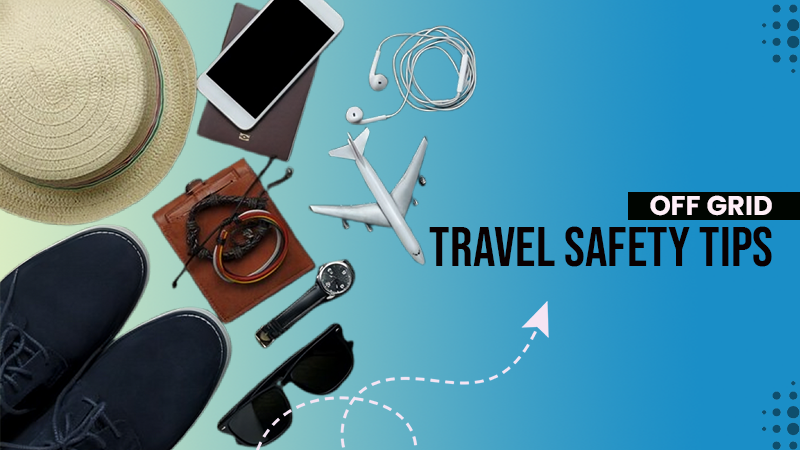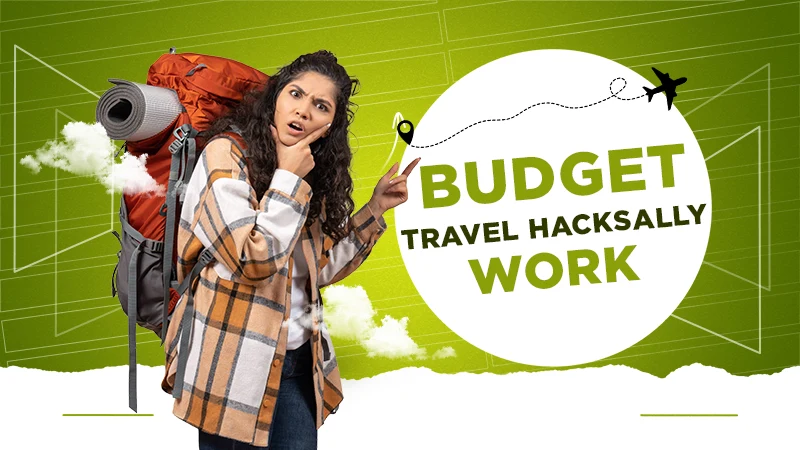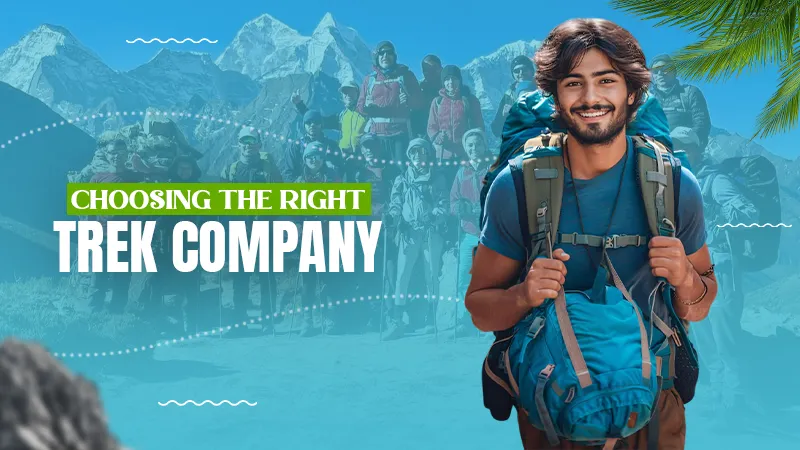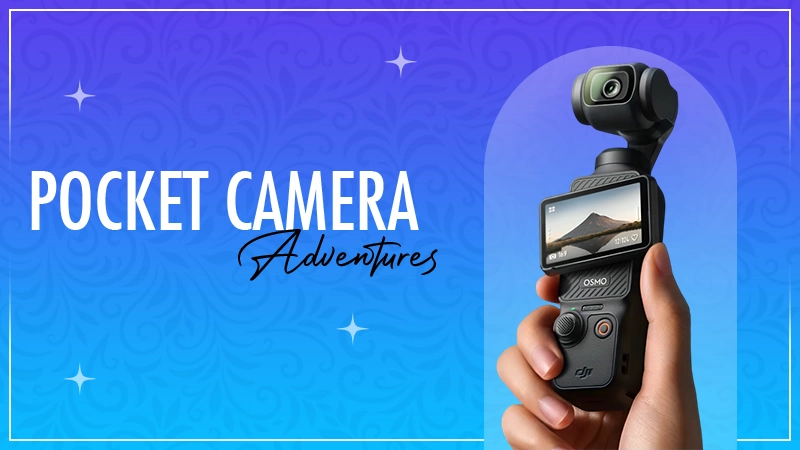
Imagine: no Wi-Fi, no emails, no notifications — just you, Mother Nature and a bag full of essentials. Off-grid travel is the ultimate antidote to modern life and the perfect way to detox from our tech world. However, idyllic as that sounds, the road less travelled requires a bit more prep. The freedom of being off-grid or even just travelling solo comes with the responsibility of keeping yourself safe and organised.
Getting the basics down, from how to map out your itinerary to protecting your essentials, can make the difference between a blissful getaway and a survival horror story.
We’ve already covered 5 essentials to consider before travelling abroad, but today we’re exploring staying safe on off-the-grid trips. So, before you strap on your boots and hit the road, here are some common-sense tips to help keep your off-grid adventure as smooth, safe and stress-free as possible.
1. Plan your itinerary like a pro
When you’re heading off-grid, your itinerary isn’t just a rough outline of where you’d like to go — it’s your lifeline. Having a trip outline packed with routes, estimated travel times and important contacts keeps your life organised and ensures that loved ones are on the same page when it comes to your movements, especially if you’re jet-setting to the other side of the world.
The catch is that you can’t rely on internet data to download Google Maps or travel plans when you’re in the wilderness. So before you set off, get acquainted with a PDF maker. Saving your itinerary as a PDF makes your plans accessible wherever, and easily shared. Unlike digital docs that require specific apps to access, PDFs can be opened across devices, and offline.
Whether you’re writing down trail directions, emergency numbers or the closest safe points along your route, a PDF is small, light and dependable. Store one on your phone and, for extra peace of mind, print a copy for your backpack. Plus, sending a PDF to your family or friends before you leave ensures someone’s aware of your route for those “just in case” scenarios.
2. Keep documents safe and secure
It might not feel quite as thrilling as toting your outdoor equipment, but protecting your documents is vital when you’re going off-grid. ID, permits, medical info — these documents are a must-have in your travel box. One handy trick? Digitise and save them as PDFs too. Adding a layer of security (i.e. like an Aadhaar card PDF password), ensures your sensitive information stays private if your device is lost or accessed by someone else, reducing the risk of financial or identity theft.
This tip is especially useful for storing copies of your passport, insurance details and emergency contact numbers if you’re travelling internationally. This not only helps protect your data but also makes it easier to access whatever you need, on the go. If you’re asked for ID at a remote checkpoint, a secure PDF on your phone might save the day..
3. Invest in a reliable power source
When you’re off-grid, devices such as a GPS, torch and mobile phone may not have access to a regular charging point. A high-quality power bank and portable solar charger can go a long way in making sure the gadgets you rely on are available when you need them.
When selecting a power source, seek out something light and strong. Solar chargers are useful for long-distance trips but take longer to charge. High-capacity power banks, on the other hand, offer immediate oomph, the very thing that saves lives on shorter escapades. Your best bet is the optimal combo, for unrivalled reliability. Just remember to charge everything and bring backup cables with you (those always seem to get lost when you need them the most).
Keeping your gadgets alive isn’t all about convenience. It’s also a matter of safety — whether that means using GPS to navigate through the woods, calling for help in a pinch or simply grabbing a torch to help you find your way around your camp at night.
4. Master the art of layered packing
You don’t pack for an off-grid expedition by shoving it all in and hoping for the best. It’s all about balance. You need to carry everything, but you also have to keep your pack light enough that you can schlep it for miles. The secret to success is layered packing.
First, consider the basics, such as waterproof jackets, stout boots, a first-aid kit and plenty of snacks. Then reflect on your comfort and safety. Bring a sturdy tent, a warm sleeping bag, as well as tools like a pen-knife and fire starters. Carry gadgets including water purification tablets or filters to safely drink from natural sources, and help you maximise your enjoyment off-grid.
The “layering” trick is useful when packing your bag. Keep whatever you’ll need to access often like your food, maps and phone at hand. Heavier items such as your sleeping gear should be on the bottom or closest to your back, more comfortably distributing the weight.
5. Stay visible to stay safe
When you’re off-grid, camouflage may seem appealing — but staying in sight is necessary, especially if you’re on your own. Pack high-visibility gear, like reflective clothing, headlamps and even glow sticks, so you can be seen in low-light or emergency conditions.
Another must is carrying a whistle. If you’re lost or in trouble, the sharp sound of a whistle travels farther than your voice and may make it easier for rescuers to find you. To add an extra layer of safety, make sure to carry a personal locator beacon (PLB) or satellite messenger. These gadgets allow you to transmit emergency alerts when you’re out of cellular range — a lifesaver for adventurers in far-flung places.
Keep in mind that off-grid travel is just as much about safety as it is about adventure. So if visibility is your priority, you’ll be able to relax and enjoy the journey with peace of mind.
Off-grid travel essentials: final thoughts
There’s no denying that off-grid adventuring is an incredible experience. It can rewire your view of the world, and leaves you with stories to share for years to come.
Hitting the road is more than just an adventure when you go off-grid — it’s the freedom that comes with knowing you’re safe. From planning your itineraries to keeping yourself more visible, these nuggets ensure your mind stays focused on exploring without fear of the ‘what ifs’.
So pack wisely, be prepared, and set off ready to roll with the punches.











